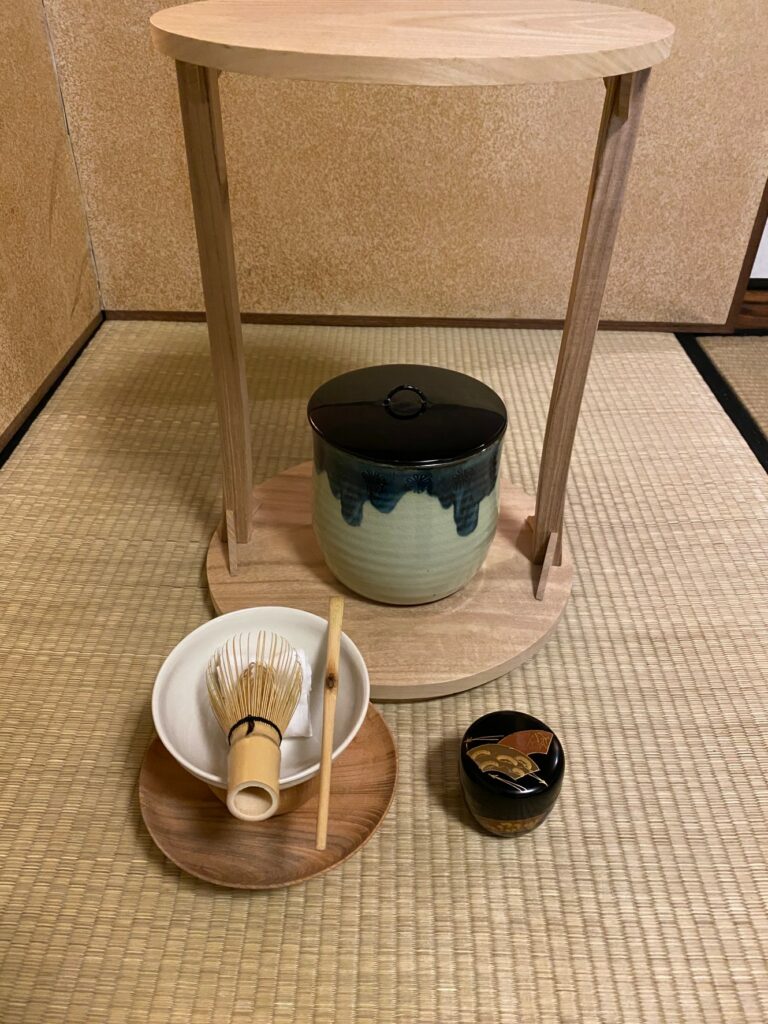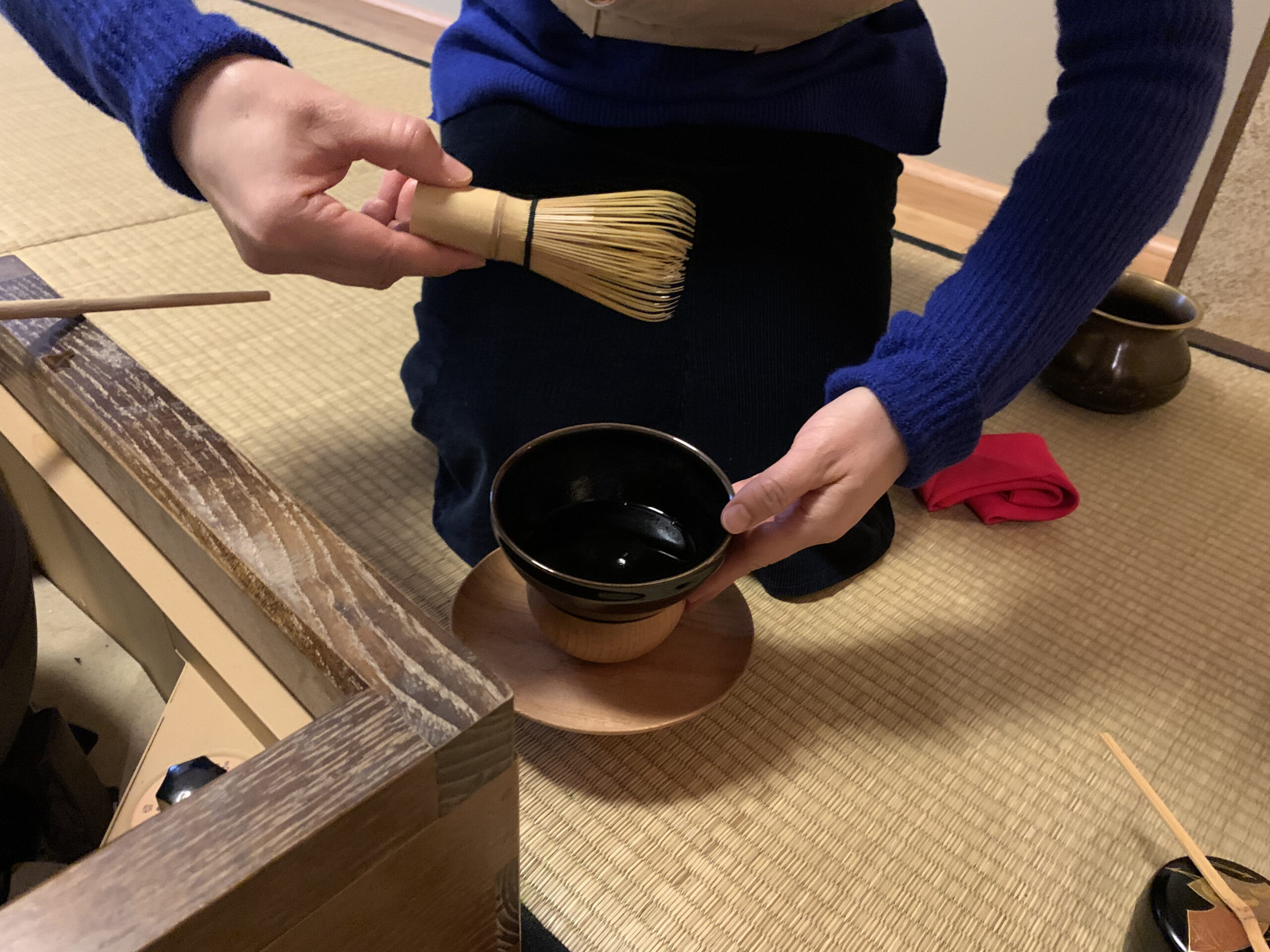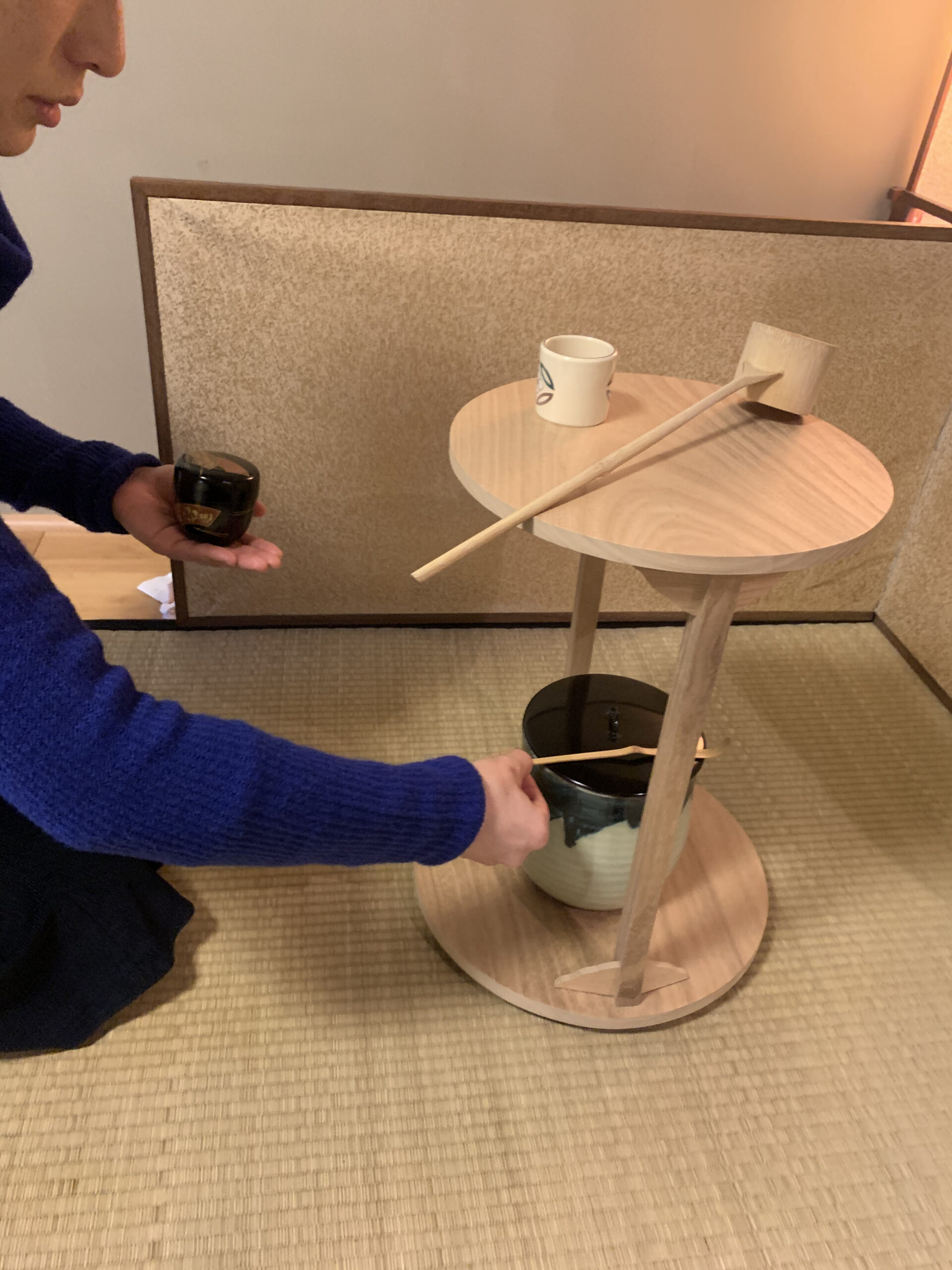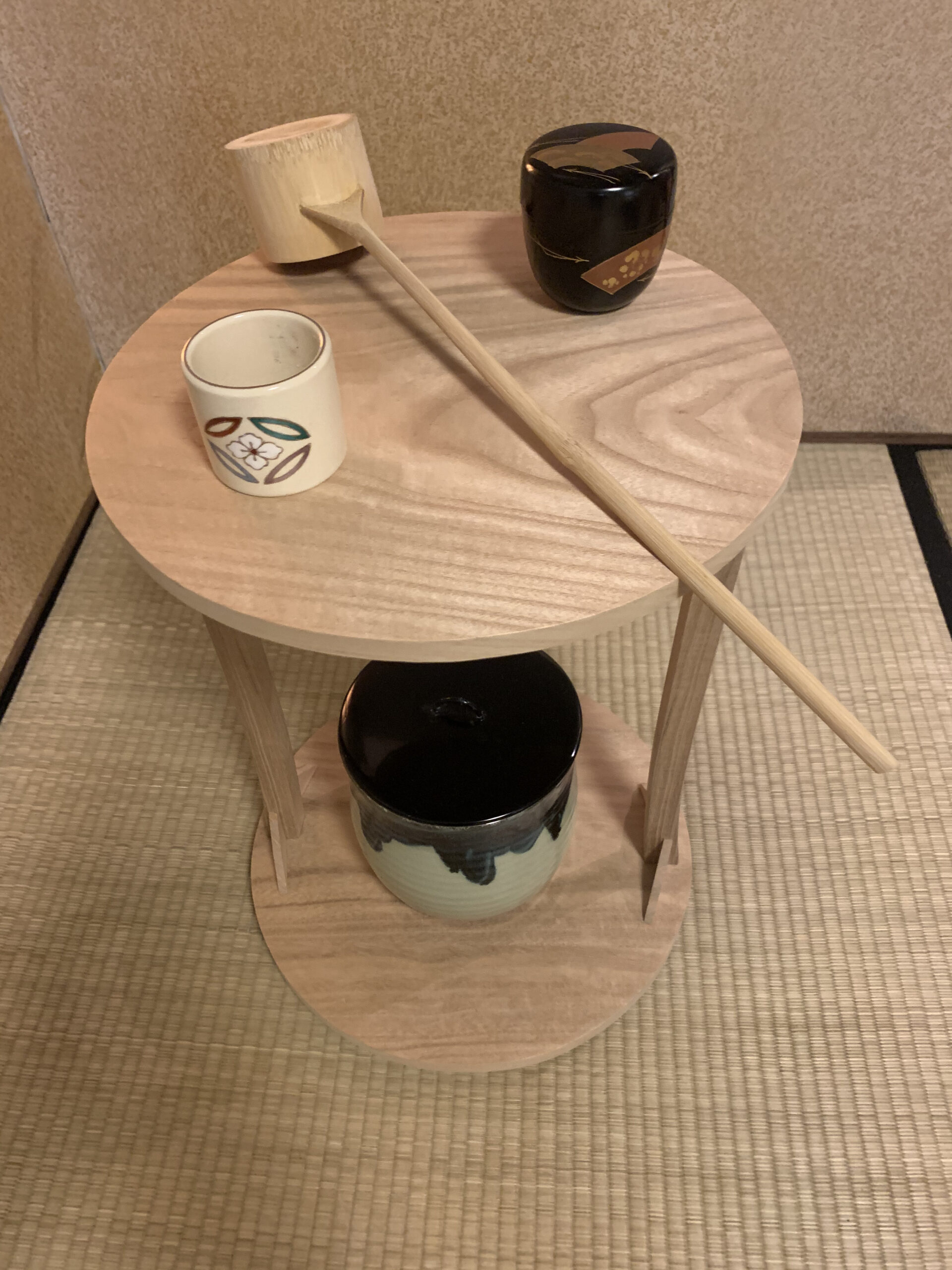床の軸は『四海浪平』(しかいなみたいら)。これは禅語で、見渡す限り 海の波は穏やかという意味。ミャンマー、香港の民主化を望む国民に対する軍部や、国家権力の暴挙、絶えることのないシリアからの難民、身近ではアジア人に対するヘイトクライム。昨今の暗い悲しいニュースに心が痛みます。四方の海、即ち世界中の人々が平穏無事でありますようにとの願いを込めて、この軸を選びました。花は、やっと我が家の庭に咲き始めた水仙を一輪。
The translation of the four Japanese characters on this week’s scroll is “four, ocean, wave, and calm.” These zen words mean “the waves of an ocean are calm as far as the eye can see.” The recent news from around the world—including the Myanmar coup, China’s crackdown on Hong Kong, the crises of migrants and refugees, and hate crimes against Asians—all saddened my heart and inspired me to hang this scroll of calm and peace. I placed it beside the first daffodil blooms from my garden.
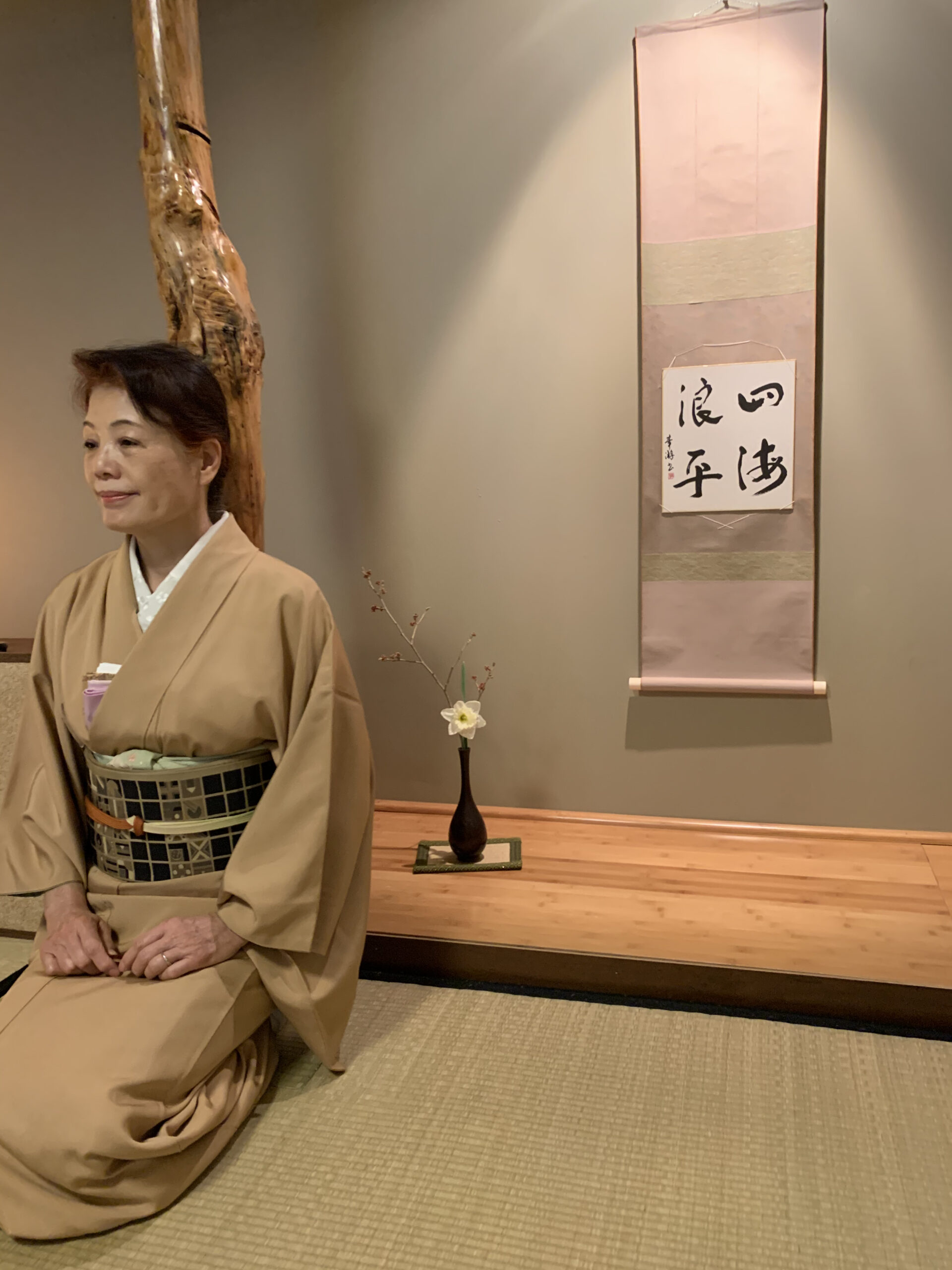
『貴人点』は高貴な方に茶を差し上げる点前といわれています。かつては宮中の官位のある方等を招いた茶会でよく行われた点前のようです。薄茶、濃茶とも一人一碗、お菓子も一人一つずつ、高杯(たかつき)に盛ります。天目茶碗を貴人台に載せて、茶巾、茶筅、茶杓を仕込みます。この点前では半東(給仕役)さんがお茶や拝見の道具の取りつぎをします。
Historically, tea was served in the palace to kinin (high-ranking officials and noblemen). In this kinindate procedure, the tea and a sweet, which is never shared, is served individually on a small tabletop.
We placed the tenmoku jawan (a conical teabowl) on the kinindai (teabowl stand), then added a chakin, chasen, and chashaku on the teabowl. In this procedure, the hanto (or host’s assistant) typically carries the tea and utensils back and forth between the single guest and the host.
